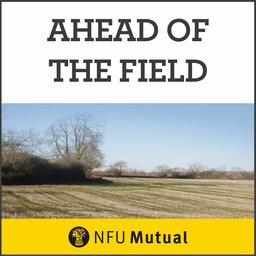Understanding and combatting dog attacks on sheep
There’s been a worrying spike in incidents of ‘Livestock Worrying’. To understand this better and talk about what’s being done to combat it Will talks to Rob Taylor from North Wales Police rural crime team, Debs Roberts, a Scottish farmer and co-founder of ‘Ladies who Lamb’ and NFU Mutual farming specialist, David Harrison.
In 1 playlist(s)
Ahead Of The Field
Will Evans visits farms around the country to exp…Social links
Follow podcast
Recent clips

Rare breeds and holidays lets at Owl Farm
18:10

Speaking to Harry Metcalfe about a career in farming and cars
22:51

Succession Planning in the Farming Community
45:54
 Ahead Of The Field
Ahead Of The Field